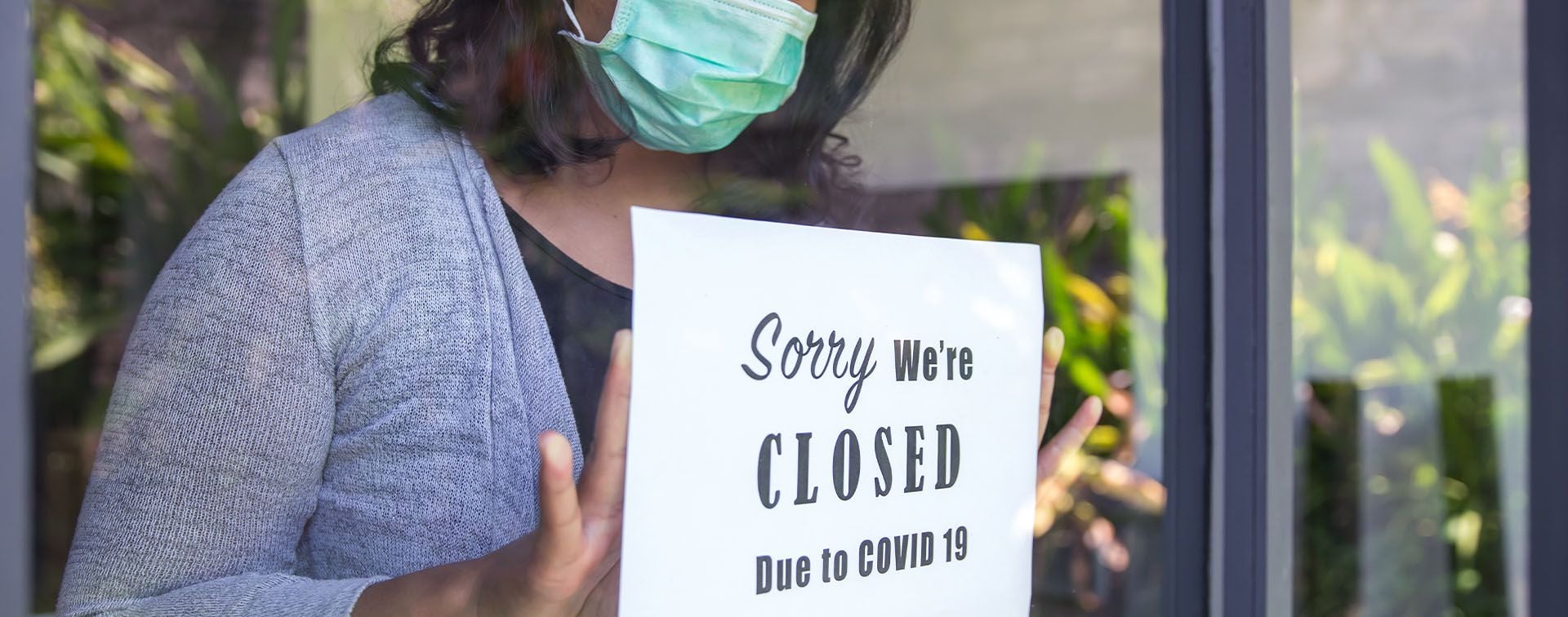
Oriel Morrison is one of Asia’s most well-known business journalists and has recently added company founder to her résumé. She hosts global conferences and events, and often speaks on topics including geopolitics, finance, markets, and news.
Australia and New Zealand’s once stellar rankings in terms of their handling of Covid-19 have been dealt a blow. A resurgence of the virus in the form of the Delta variant has been a sober reality check for the island nations. Australia plunged to 28th place in Bloomberg’s Covid Resilience Ranking — the worst slide among the 53 major economies tracked. New Zealand fell by one place to 3rd spot, largely because the number of deaths from the virus remains low. A global effort is required to overcome the predicament we all face. As the UN aptly put it last year, “As the pandemic has shown us, in our interdependent world, no one is safe until everyone is safe.”
Despite a year of international plaudits for Australia and New Zealand’s Covid responses, in June more than 20 million Australians went into lockdown, and in July New Zealand implemented a nationwide lockdown after the highly transmissible Delta variant had taken hold in both countries. So much so, that travelers were infected with the virus while in quarantine, despite being in separate rooms.

The Delta outbreak also highlighted the failure of vaccination programs, as Australia and New Zealand were both among the last of the OECD countries to roll out vaccines, leaving their populations vulnerable.
There were many contributing factors. Australia’s government initially limited vaccines to people over 60, there was a shortage of Pfizer vaccines, and there was some skepticism about the safety of the AstraZeneca vaccine — which Australia has in large amounts and produces domestically. New Zealand also had supply issues.
But the very real spread of Delta led to a rapid surge in vaccinations, with Australia now ranking among the fastest in the world, ahead of even the best weeks recorded in the UK and the USA. As a result, Australia expects 80% of the adult population to be vaccinated by December, and New Zealand hopes to vaccinate every consenting adult by year end. To continue the momentum, Australia’s government wants to give the vaccinated more freedom, with the prime minister arguing that those who pose less risk to others should be allowed to undertake riskier behavior.
While mandatory vaccination is not legal, according to experts it is legal for governments to impose restrictions on people in times of health emergencies. This means health orders can be declared.
In the current phase of Australia’s Covid response plan, when 70% of the population is vaccinated, restrictions will be eased for some, including the vaccinated being exempt from state border closures or lockdowns, and businesses being able to remain open during lockdowns — to those who have had their jabs.
This would in essence equal a ‘domestic’ vaccine passport. Services Australia (Australia’s Department of Human Services) has negotiated a deal with Apple and Google to allow iPhone and Android digital wallets that show Australians’ Covid-19 vaccination records from their MyGov accounts. In Victoria, the government is trialing a ‘vaccine economy’, with more events, facilities, and services open to those who have had two jabs.
On the international front, Australian Prime Minister Scott Morrison has confirmed that international borders will reopen in November, for the first time since the pandemic hit. The first caveat — people will only be eligible to travel when their state hits the 80% vaccination rate.
Mandatory 14-day hotel quarantine will be replaced by seven days of home quarantine for vaccinated Australians and permanent residents. The second caveat is that those vaccinations must be recognized or approved by the Therapeutic Goods Administration (TGA). Unvaccinated travelers must still quarantine for 14 days in a hotel.
Borders remain closed to other foreigners, but the Government says they are working on “welcoming tourists back to our shores”. No timetable has yet been given.
South Australia is already trialing Australia’s first home-quarantine strategy, with geo-location and facial recognition software tracking people who are quarantining.
Australia’s international airline Qantas responded immediately, announcing it will restart its international flying a month earlier, from 14 November.
Qantas will also require passengers on international flights to be vaccinated once quarantine-free international travel eventually returns. Along with several other airlines, Qantas has trialed a vaccine passport system using the International Air Transport Association’s Travel Pass. The system is interoperable with Australia’s digital certificates.
But international vaccine passports are complicated, as they require bilateral agreements with each country to accept vaccine passport information. Australia’s Prime Minister Scott Morrison said “internationally recognized” vaccine certificates would be available to Australians by October, in the form of the Visible Digital Seal product promoted by the International Civil Aviation Organization.
A key requirement of vaccine passports is the mutual recognition of specific vaccines with foreign counterparts. Modeling by The Economist shows the most widely accepted vaccines on internationally are AstraZeneca and Pfizer-BioNTech.
At the time of writing, neither the Australia-manufactured version of AstraZeneca (branded Vaxzevria) nor the Astra vaccine made in India (branded Covishield), had been recognized by the EU, and Chinese and Russian vaccines have not yet been accepted on a global level due to a lack of associated data.
But according to the Australian government, the TGA will soon recognize China’s Sinovac and India’s Covishield. This will be a boon to the international education sector in Australia, given Chinese students accounted for a third of the AUD 35 billion sector prior to the pandemic.
The faster than expected border openings follow the roadmap put in place, based on modeling by Australia’s Doherty Institute. The government says when 80% of all Australian adults have been vaccinated, those with proof will be allowed to travel to safe countries overseas. Returning Australians won’t have to isolate on return unless there is an outbreak in the country they visited. The travel bubble with New Zealand (which remains suspended until November) will be extended to low-risk countries, likely Singapore and some Pacific islands. It is hoped that this phase (C) will be reached by December. Phase D will see international borders reopening, and only those from ‘high-risk countries’ being quarantined.
New Zealand’s dependency on tourism means the pressure is on to reopen borders. The island nation is planning to implement a tiered, risk-based system for those seeking entry. Vaccinated travelers from high-risk countries will have to quarantine for 14 days, those from medium-risk countries could have reduced quarantine or be allowed to self-isolate, and those from low-risk countries will be allowed in without having to quarantine. The government will trial a program between October and December this year allowing some returning travelers to self-isolate at home.
Since March 2020, Australia and New Zealand’s international borders have been closed to most of the world, with close to 44,000 registered as wanting to return. And the arrival of the Delta variant restricted movement even further.
At the same time, around 15,000 foreigners have been granted a Business Innovation and Investment Visa, with more than 3,000 now in Australia. The visa requires applicants to have significant personal or business assets, which critics say is equivalent to buying a way into Australia.
In July, the government reduced the number of visa streams available and tightened criteria, to improve the quality of the investments and applicants. The planning levels for the Business Innovation and Investment Program will remain at 13,500, the Global Talent Visa Program at 15,000 and the Employer Sponsored visa at 22,000. The federal government has also said it will fast-track visa applications for more occupations on the Priority Migration Skilled Occupation List to support the country’s post-coronavirus economic recovery.
Under the business innovation stream, applicants must buy or start a business, and have AUD 1.2 million in total net business or personal assets. Applicants to the investor stream must be nominated by a state or territory agency and spend AUD 2.5 million on qualifying investments. The significant investor stream requires an investment of AUD 5 million.
Temporary visas have fallen dramatically with the onset of the Delta strain, with over 500,000 migrants leaving the country since the pandemic began, creating a huge skills deficit. Federal government data indicates Australia has also lost more than 100,000 international students over the past financial year.
In a bid to address labor shortages, the government has temporarily removed the cap on the working hours for international students employed in the hospitality and tourism sectors. And while the international border remains shut, temporary visa holders in priority occupations can seek exemption from travel restrictions.
A new agriculture visa has also been announced, which will be extended to 10 Association of Southeast Asian Nations countries by the end of the year.
In New Zealand, the Government has granted special visas for entertainers, sportspeople, essential workers, and students. It has extended Essential Skills visas and simplified the application process and says the accredited Employer Work Visa Scheme will be rolled out in mid-2022.
Nothing is locked in stone, as the virus and its epidemiology changes and evolves over time. Experts say that only when a universal vaccine is developed, which can protect against current and yet-to-be-seen variants of SARS-CoV-2, will we be able to move around the world with the freedom we have been used to.